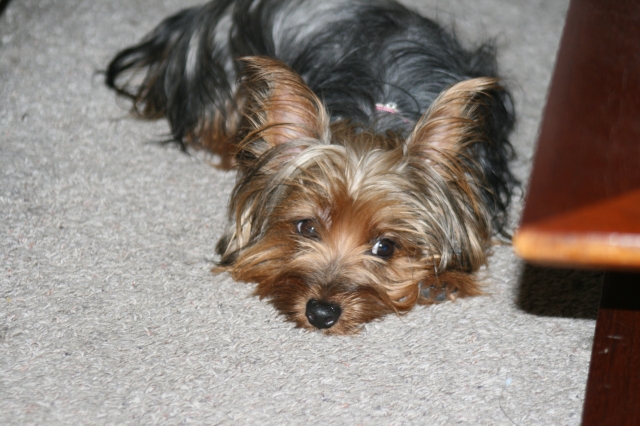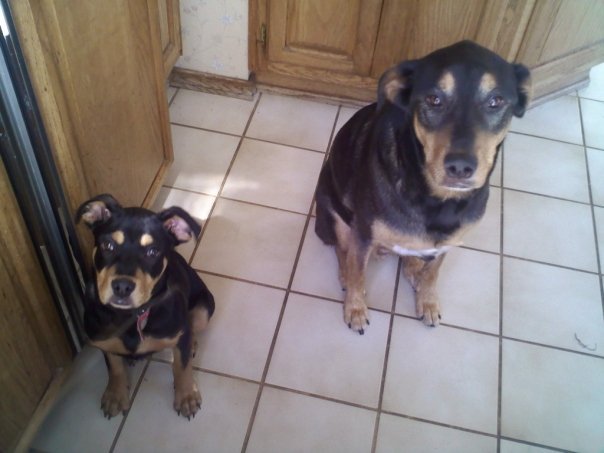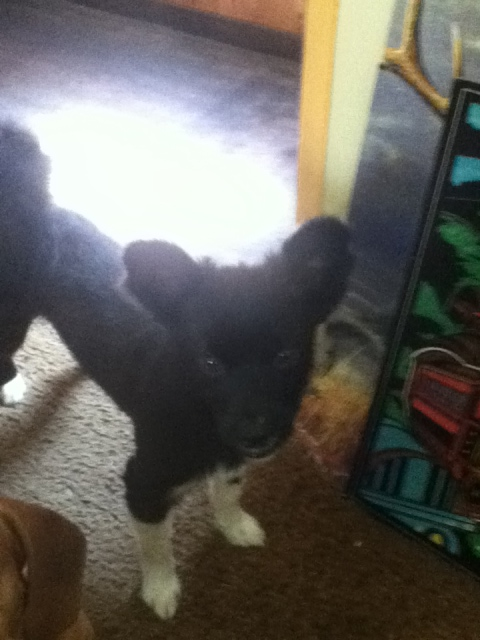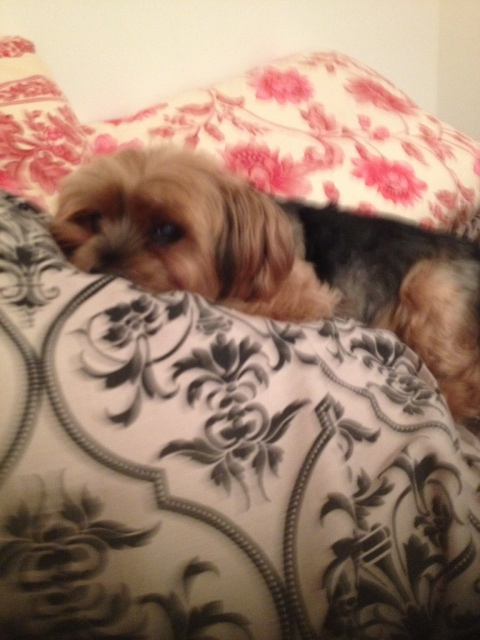QuestionI have a 1 pound Yorkie that is 12 weeks old. This morning her stomach is making VERY loud noises with great frequency. She does not seem to be acting odd and she does not seem to be in any pain. Her last stool also seems quite normal. I am very concerned at how loud and frequent this is occuring.
AnswerHi Lindsey,
Loud stomach noise is called Excessive Borborygmus, it's symptom is loud stomach noises. What you hear is the rumbling noise produced by the passage of gas through the dog's intestinal tract.
You didn't say if your dog has been having gas, or not. Excessive formation of gases is sometimes present when a dog has loud stomach noises.
You can try adding a little fiber to your dog's diet.
If you add fiber to your dog's diet, food will get faster to the intestines and gases will have less time to develop. Try adding about one teaspoons of canned pumpkin to your dog's meals ("pure" canned pumpkin, not the spiced pumpkin pie filling mix). It's best to start with smaller amounts, see how that goes, and then increase to whatever amount your dog will tolerate. If you give your dog too much, it can cause loose stools, or diarrhea.
Anti-gas enzymes supplements such as Digel, Maalox and Mylanta might help. The liquid form of these over the counter drugs work better on dogs than the chewables. A dog has a shorter digestive track than a person, and a chewable can be swallowed un-chewed, and pass right through the dog. Talk to your vet for the correct dosage.
You might try feeding your dog smaller portions, two, three, or even four times a day. You should be sure that your dog's meals are "served" in a quiet, isolated location. Limit water intake after meals too, particularly if your dog regularly drinks large quantities of water at a time. Smaller portions served more often is better than a lot at once.
It is also helpful to avoid situations that provoke nervousness and to prevent greedy fast eating, both of which result in swallowing air.
If possible, your dog should be walked outdoors within 30 minutes of his meals. This encourages defecation and elimination of intestinal gas.
If the nosies are bad in the evening, try giving your dog a milkbone before you go to bed.
I hope that helps,
Best of luck,
Patti

 Agression towards kids
Question
Holly Daze
I have a 2.5yo Silky Terrier. She i
Agression towards kids
Question
Holly Daze
I have a 2.5yo Silky Terrier. She i
 Dominant dog issues
Question
my 2 dogs
I have a 6 year old rottie/shepard m
Dominant dog issues
Question
my 2 dogs
I have a 6 year old rottie/shepard m
 ideas of what breed dog this is?
Question
dog dog
i was wondering if anyone
ideas of what breed dog this is?
Question
dog dog
i was wondering if anyone
 8wk old pup biting
Question
pebbles
hi i wonder if u can help me my
8wk old pup biting
Question
pebbles
hi i wonder if u can help me my
 Cant afford medical care for my yorkie
Question
Mr. Bojangles BoBo
Hi, I adopted
Cant afford medical care for my yorkie
Question
Mr. Bojangles BoBo
Hi, I adopted